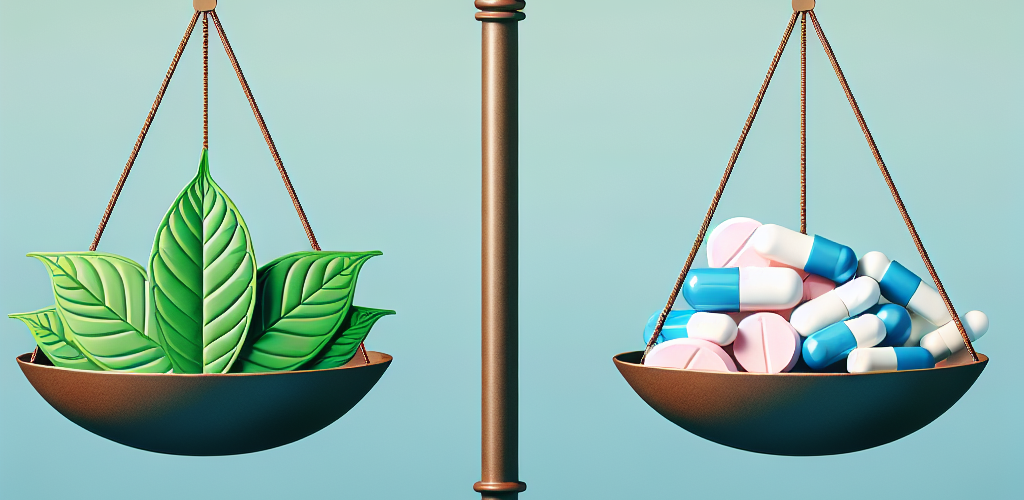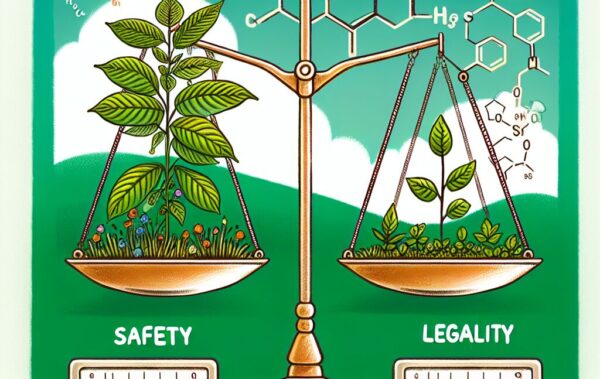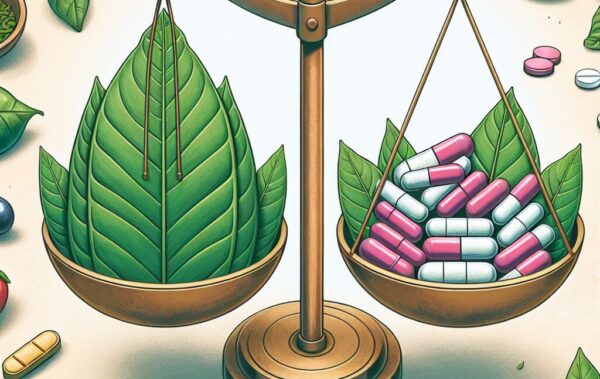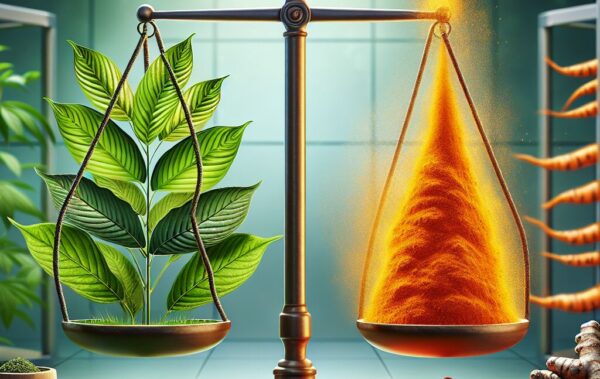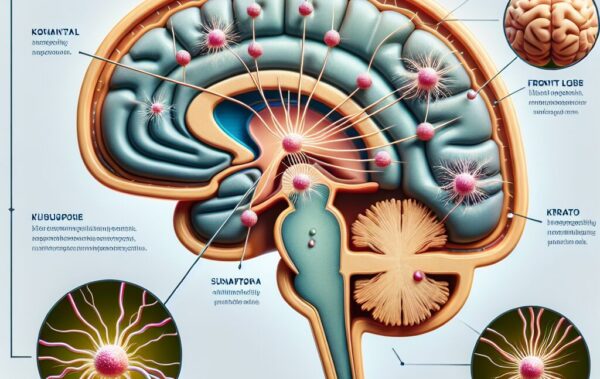Kratom, a tropical tree native to Southeast Asia, has piqued the interest of many as a promising alternative treatment for a range of conditions. In countries like Thailand, Malaysia, and Indonesia, the leaves of the kratom plant have been utilized for centuries by local populations. They would chew the leaves for their stimulating effects to endure long hours of labor or grind them into a powder to alleviate various ailments.
Over recent years, kratom has garnered significant attention in the Western world, particularly among individuals seeking natural alternatives to conventional medicine. It is most commonly consumed in the form of a powder, which can be taken in capsules, mixed into beverages, or brewed as a tea. You can find a diverse array of kratom products, including powders and capsules, at various online marketplaces, one of which you can browse through at the Kratom shop page.
The potential applications of kratom are broad, but it has gained particular acclaim as an aid for mental health, especially among those struggling with anxiety. The active compounds in kratom leaves, mitragynine and 7-hydroxymitragynine, interact with opioid receptors in the brain, producing sedation, pleasure, and decreased pain when taken in high doses. In lower doses, it has the opposite effect, potentially providing users with increased energy and alertness. Such stimulant effects have made kratom a popular substance for aiding individuals looking to enhance their productivity or as an alternative for those who are sensitive to the effects of caffeine.
As with any substance affecting physiological processes, dosing is crucial. Traditionally, dosages varied based on the form in which kratom was consumed. In its native regions, consuming a few fresh leaves was common for mild stimulation, while more robust effects required a more substantial amount of dried leaf powder. Today, those exploring kratom for its potential benefits have various dosing options, such as pre-measured capsules or kratom tea bags, providing a controlled introduction to this plant’s effects.
While many individuals report positive outcomes, the diversity in kratom strains can impact experiences, with variations like Maeng Da or Bali each offering different profiles of effects. For instance, red-veined strains tend to be more calming and are often sought after by those aiming to manage anxiety or discomfort. Conversely, white or green-veined kratom strains are more commonly associated with their energizing properties.
Incorporating kratom into one’s wellness regimen is a personal choice and one that requires a thorough understanding of its use and the effects it may produce. This context sets the stage for a comparison between kratom and prescription anxiety medications, as more people are looking towards botanicals for mental health support.
Common Prescription Anxiety Medications
Prescription anxiety medications are commonly used to treat a range of anxiety disorders, such as generalized anxiety disorder (GAD), panic disorder, social anxiety disorder, and others. These drugs generally fall into two categories: anxiolytics such as benzodiazepines and antidepressants like selective serotonin reuptake inhibitors (SSRIs) and serotonin-norepinephrine reuptake inhibitors (SNRIs).
Benzodiazepines, which include medications like alprazolam (Xanax), diazepam (Valium), and lorazepam (Ativan), work by enhancing the effect of the neurotransmitter gamma-aminobutyric acid (GABA) which, in turn, results in sedative, hypnotic (sleep-inducing), anxiolytic (anti-anxiety), anticonvulsant, and muscle relaxant properties. While effective for short-term relief, these medications can be habit-forming and are generally not recommended for long-term use due to the risk of dependence, tolerance, and withdrawal symptoms.
Antidepressants, such as SSRIs (e.g., sertraline (Zoloft), fluoxetine (Prozac)) and SNRIs (e.g., venlafaxine (Effexor XR), duloxetine (Cymbalta)), are often utilized as a first-line treatment for anxiety. These medications may take several weeks to become effective and are considered a safer alternative for long-term treatment as they have a lower risk of dependency compared to benzodiazepines. Their common side effects may include nausea, increased anxiety initially, changes in mood, sleep disturbances, and sexual dysfunction.
Anxiolytics and antidepressants are widely prescribed elements of many mental health treatment plans. They have undergone rigorous clinical testing and approval processes, establishing them as efficacious for many people. However, individuals seeking alternative treatment options for anxiety often cite concerns such as the side effects, the potential for addiction, and the desire for a more natural approach.
In looking at benzodiazepines and antidepressants, it’s also crucial to consider their interaction with other prescription medications, lifestyle factors, and overall mental health strategy. Medical professionals typically emphasize a comprehensive treatment plan that may combine medication with therapy, lifestyle changes, and sometimes alternative treatments like meditation or exercise.
Turning to natural alternatives has led some individuals to explore kratom as an anecdotal remedy for anxiety symptoms. The rise in the popularity of kratom parallels a growing interest in plant-based wellness and complementary therapies. It’s important, however, to be aware that research on kratom’s effectiveness and safety for anxiety lags behind that of prescription medications. This gap in knowledge highlights the need for more comprehensive studies to fully understand its potential as a part of mental health care.
The variation of individual responses to both kratom and prescription anxiety medications further underscores the importance of personal research and consultation with healthcare providers when considering changes to one’s anxiety treatment plan. Each person’s body chemistry, potential medication interactions, and the severity of their anxiety all play critical roles in determining the most effective approach.
Efficacy and Side Effects: Kratom vs. Prescription Drugs
When assessing the efficacy and side effects of kratom as compared to prescription anxiety medications, several factors come into play. Both options have their own sets of benefits and drawbacks that should be carefully considered by those looking for mental health support.
Kratom’s appeal as an alternative treatment lies partly in the user’s ability to personalize the experience. Kratom strains are known for their variable effects based on vein color and origin. For example, the famous red vein kratom powders are popular among people seeking relaxation and a potential decrease in anxiety-related symptoms, with many reporting a sense of calm after use. Maeng Da, on the other hand, is praised for its stronger impact and longevity, which might be more suitable for those with more persistent or acute symptoms.
In terms of efficacy, anecdotal evidence suggests that kratom could provide acute relief for anxiety symptoms. Users often report feeling less anxious and more at ease after using kratom. However, unlike prescription medications, which have been extensively studied and approved by regulatory agencies like the FDA, kratom has not gone through the same rigorous process to conclusively prove its efficacy. Thus, while personal experiences can be compelling, they do not carry the weight of scientific validation that comes with prescription drugs.
The side effects associated with kratom can vary widely. Due to its opioid-like effects, there are concerns about the potential for substance use disorder with repeated and uncontrolled use. Other reported side effects include nausea, constipation, dependency, and withdrawal symptoms comparable to opioid drugs, especially with higher or more frequent dosages. The possibility of experiencing an adverse reaction emphasizes a need for caution and ideally, supervision by a healthcare professional during use.
Prescription anxiety medications, while clinically proven to be effective for many, carry their own set of risks and side effects. Benzodiazepines have known potential for dependency and abuse, particularly with long-term use. Withdrawal can be dangerous and should be medically supervised. SSRIs and SNRIs, meanwhile, have a range of side effects such as weight gain, fatigue, and sometimes worsening of anxiety symptoms at the start of treatment, though they are considered non-addictive.
When individuals look beyond the realm of prescription anxiety medications, it is often due to concerns about these side effects or the desire to find a natural approach that aligns more closely with their lifestyle or values. However, one must balance these preferences with a clear understanding of the science and evidence behind each treatment option.
While prescription drugs are clearly labeled with dosages, side effects, and warnings, kratom products may not always provide the same level of detail. This can make it more challenging to use kratom safely. That said, it is important to purchase kratom from reputable sources. For those considering trying kratom, options such as powders, capsules, or even beverages are available that have been lab-tested and sourced with quality in mind.
Regardless of whether someone is considering kratom or prescription medications for anxiety, it’s important to approach the decision with careful thought, including the consultation of a healthcare professional. This ensures that the chosen method aligns with individual health needs, takes into account potential interactions with other medications or health conditions, and factors in the full spectrum of available mental health support systems.
Ultimately, the choice between kratom and prescription anxiety medications is a deeply personal one that should be made based on a comprehensive understanding of the potential risks and benefits. Whatever choice one makes, it should be an informed one, supported by qualified healthcare guidance and a focus on overall well-being.
Legal Considerations and Accessibility
 When discussing the legal considerations and accessibility of Kratom versus prescription anxiety medications, it’s crucial to understand that the regulatory landscape is complex and varies widely between countries, states, and local jurisdictions. Kratom, despite its historical use in Southeast Asia, faces legal restrictions in several nations, including some states within the United States. Its legal status is often in flux, with ongoing debates about its safety, potential for abuse, and therapeutic value.
When discussing the legal considerations and accessibility of Kratom versus prescription anxiety medications, it’s crucial to understand that the regulatory landscape is complex and varies widely between countries, states, and local jurisdictions. Kratom, despite its historical use in Southeast Asia, faces legal restrictions in several nations, including some states within the United States. Its legal status is often in flux, with ongoing debates about its safety, potential for abuse, and therapeutic value.
In the United States, the Drug Enforcement Administration (DEA) has listed Kratom as a “drug of concern” but has not classified it as a controlled substance at the federal level. This means that while Kratom is legal under federal law, individual states have the authority to ban or restrict its sale and use. States such as Alabama, Arkansas, Indiana, Rhode Island, Vermont, and Wisconsin have laws prohibiting Kratom, but in other states, it remains accessible and can often be found in specialty stores or through online vendors like our Kratom shop page that offers a range of Kratom products, from powders to capsules.
The accessibility of Kratom as an alternative treatment for anxiety, therefore, is highly dependent on one’s geographic location and the local legislative environment. Consumers interested in Kratom must stay informed about their local laws to ensure they are in compliance. Information about the legal status of Kratom can typically be found through advocacy groups, state government websites, or by consulting with legal professionals.
Prescription anxiety medications, in contrast, are subject to stringent controls. They are available only through a legitimate prescription from a licensed healthcare provider, who must abide by federal and state prescribing regulations. These medications are overseen by the FDA, ensuring that products are safe, effective, and that their manufacturers provide transparent information about the risks and recommended dosages. The controlled nature of these substances is designed to minimize the risks of misuse, dependency, and other adverse effects, albeit access is dependent on healthcare coverage, which can be a barrier for some individuals.
Furthermore, as prescription medications can be essential for many patients’ mental health care, governments and insurance companies often take steps to ensure they are accessible, though the specific policies and coverage can vary widely. Patients with insurance may pay a small co-pay for their medications, while others may seek programs that assist with pharmaceutical expenses.
In terms of accessibility, it should be mentioned that geography can also affect the ease of obtaining prescription anxiety medications, with rural areas sometimes having fewer healthcare providers and pharmacies, which can pose challenges for those in need of these treatments.
Overall, when choosing between Kratom and prescription medications, the accessibility and legal considerations can greatly impact an individual’s ability to utilize these substances for managing anxiety. For those opting for Kratom, suppliers that ensure purity and quality, such as those featured on marketplaces like ours, are essential to consider. Meanwhile, prescription medications’ accessibility is generally more straightforward but requires adherence to medical advice and proper channels to obtain and use the drugs safely and legally. Whether considering Kratom or prescription drugs for anxiety treatment, it’s paramount to be well-informed about the legal framework and to ensure safe and responsible use.
Frequently Asked Questions about Kratom and Anxiety Meds
Navigating the complexities of mental health treatment can be overwhelming, prompting many questions about the use of kratom in comparison to prescription anxiety medications as alternative treatment options. Here we address a selection of frequently asked questions to offer additional clarity.
- What is kratom and how is it used for anxiety?
- Kratom is a natural supplement derived from the leaves of the Mitragyna speciosa tree, which is indigenous to Southeast Asia. Kratom contains alkaloids such as mitragynine that interact with opioid receptors in the brain, leading to effects that may help with anxiety. It is traditionally used in various forms such as powder, capsules, and teas to create a sense of calm and relaxation.
- Can kratom replace my prescription anxiety medication?
- It’s essential to consult with a healthcare provider before making any changes to your medication regimen. While some individuals report positive experiences with kratom for anxiety relief, it has not been scientifically validated as a replacement for prescription medications. If you are considering kratom, it’s crucial to understand the potential risks and benefits while under medical supervision.
- What are the most common side effects of kratom?
- The side effects of kratom can vary but may include nausea, constipation, dependency, and withdrawal symptoms with higher dosages. Since kratom has not undergone the rigorous approval process that prescription medications have, it’s vital to approach its use with caution. Purchasing from reputable sources, such as quality-assured vendors, can help mitigate risks.
- Is kratom legal, and how does its legality compare to prescription anxiety meds?
- Kratom’s legal status varies depending upon geographic location. It is currently legal at a federal level in the United States but banned in some states. Always check local laws before purchasing or consuming kratom. Prescription anxiety medications, on the other hand, are legal when prescribed by a healthcare provider and are regulated by agencies such as the FDA.
- How do I find reputable sources for kratom?
- When searching for reputable kratom suppliers, look for vendors that provide lab-tested products and transparent sourcing information. Online marketplaces like Kratom.markets are valuable resources where you can find a variety of kratom-related products that prioritize quality and consumer safety.
The landscape of mental health treatment is diverse, and while kratom presents an interesting alternative, it remains a personal decision that should be informed by careful consideration and professional advice. For those curious about exploring kratom, or for those seeking further information about their prescribed anxiety medications, working in collaboration with healthcare professionals is the surest path towards appropriate care for mental health and well-being.

